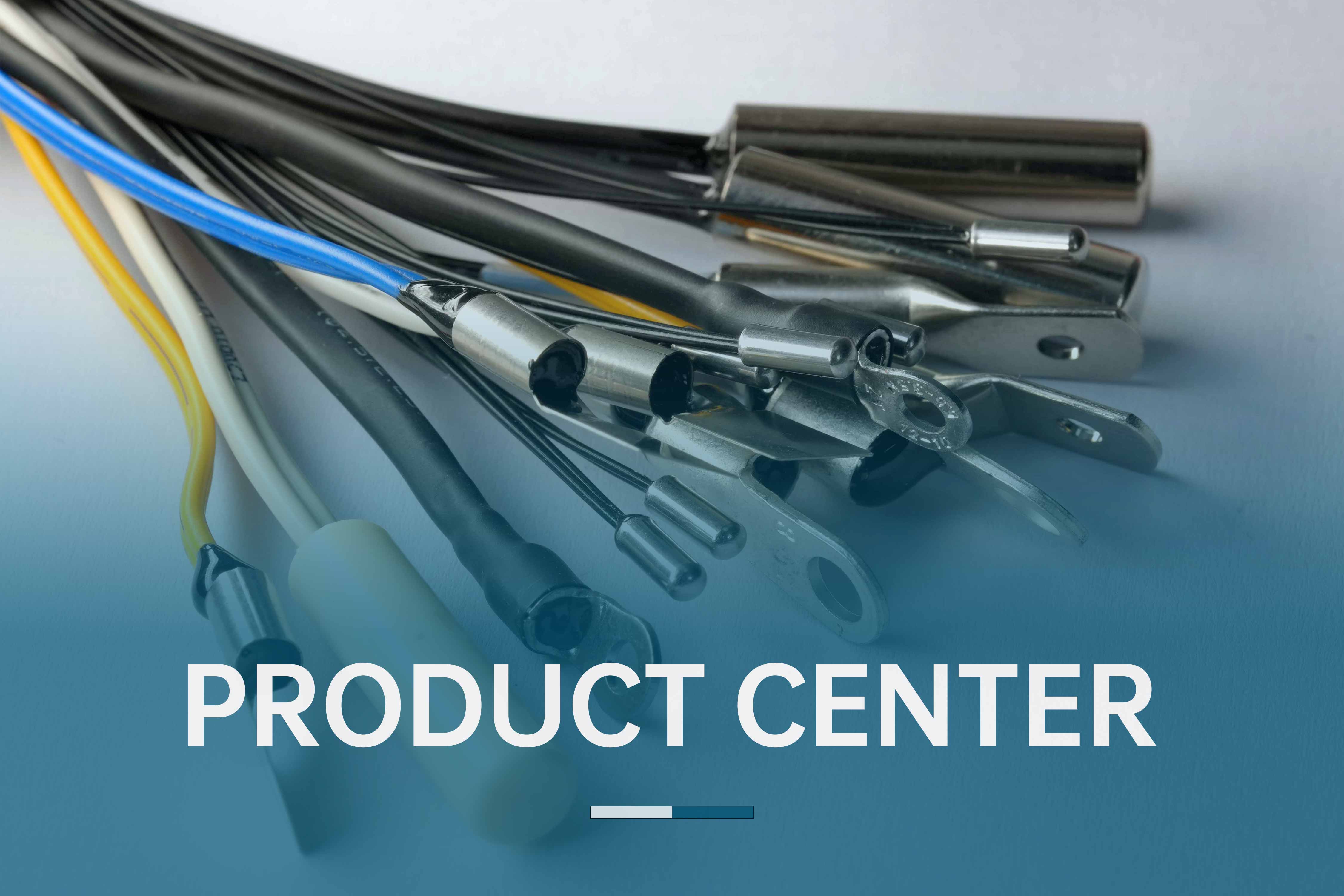There’s a saying in manufacturing: “If your thermal control’s off, everything else is just guesswork.” That might sound a little dramatic, but if you’ve ever watched a rice cooker boil over or a coffee maker spit out bitter sludge, you know there's truth to it.
At the heart of most reliable thermal systems lies a component that’s often overlooked—but absolutely essential: the NTC thermistor.
Let’s take a closer look at why appliance manufacturers keep turning to this quiet workhorse, and how the right NTC sensor—like those from Minsing—can be the difference between product confidence and a call to customer support.

What Makes NTC Thermistors So Critical?
In simplest terms, an NTC (Negative Temperature Coefficient) thermistor is a resistor that decreases in resistance as temperature rises. What sounds basic on paper translates into real-time temperature sensing and control, which is mission-critical for appliances that demand both precision and safety.
Think of it like this: if your thermostat is the brain, the NTC thermistor is the nerve ending—it senses heat changes and relays that signal so your system knows how to react.
Here are a few common applications where NTCs quietly do their job—and why they're so valuable.
1. Rice Cookers: Precision Keeps the Lid On
Undercooked rice? Overflowing water? That’s your temperature control system failing to keep up.
Modern rice cookers rely on NTC thermistors to constantly monitor the temperature at the base and inner wall of the pot. Based on real-time feedback, the control board adjusts heating intensity depending on water levels, rice quantity, and cooking phase.
It’s not just about hitting 100°C—it’s about recognizing when the water’s gone and preventing a scorched pot or a soggy mess. The right thermistor helps the cooker "think" like a chef.
2. Coffee Machines: Brewing Is a Science, Not a Guess
Ask any barista—brewing temperature makes or breaks flavor.
Too cool, and your coffee's flat. Too hot, and it’s bitter. That’s where NTC thermistors come in, keeping water temps in the ideal 90–96°C range.
Minsing, for example, supplies high-accuracy NTC thermistors with carefully controlled B-values to major coffee machine brands. These sensors are tailored to respond quickly and reliably—even during back-to-back brews—ensuring every cup hits the mark.
3. Toasters: Crisp, Not Charred
Toasters might seem simple, but getting that golden-brown toast without tipping into burnt territory? That takes finesse.
Here, thermistors are embedded near the heating elements, constantly adjusting based on surface temps. The system tweaks heating cycles by the second, ensuring even browning without overcooking.
And in enclosed high-heat environments, the sensor’s packaging matters a lot. Minsing’s glass-encapsulated thermistors perform especially well here, resisting thermal drift and moisture while keeping calibration intact.
4. Battery Packs & Electric Vehicles: Safety First, Always
We often associate thermistors with small appliances, but they play a huge role in energy systems, too.
In battery packs—whether for home tools or EVs—thermistors act as thermal monitors, detecting overheating during charge cycles, signaling for cooldowns, and even triggering thermal cutoffs during extreme heat events.
In EVs, this is even more crucial. Think cold-start in a Canadian winter or a heatwave in Arizona—the thermistor must be accurate across a broad temperature range, with fast response time and zero lag.
What Makes a Good Thermistor Vendor
Choosing an NTC thermistor isn’t just about specs. Sure, resistance values and B-curve data matter—but so does vendor reliability, especially when you're shipping thousands of units monthly.
Why do OEMs prefer suppliers like Minsing
Broad industry compatibility: From kitchen appliances to EVs, their thermistors perform across applications.
Customizability: Need a specific cable material? Special housing? They can do it.
Fast, consistent lead times: Let’s be honest—delayed components stall product launches.
Proven stability: Their thermistors hold calibration and resist moisture, oxidation, and aging.
Certifications and documentation: Safety and compliance? Already handled.
In short, you’re not just getting a part—you’re getting peace of mind.
Why It All Matters
The NTC thermistor may be one of the smallest components on your board—but it carries a huge responsibility. It ensures your product doesn’t overheat, underperform, or shut down at the worst moment.
From consumer trust to product lifespan, so much depends on the stability of thermal control.
And while not all thermistors are created equal, working with an experienced, responsive supplier like Minsing means fewer surprises, fewer failures, and faster product rollouts.
Key Takeaways
NTC thermistors are essential in everything from rice cookers to electric vehicles.
Their job? Deliver real-time, accurate temperature feedback to ensure safety and performance.
Minsing’s NTC sensors stand out for precision, reliability, and customizability.
The right thermistor supplier isn’t just a vendor—they’re a partner in your product's success.
When thermal control matters (and it always does), don’t overlook the part that sees it all coming.

Why NTC Thermistor Are the Unsung Heroes Behind Smarter, Safer Home Appliances
- Related recommendations: NTC Thermistor
- keyword: 【NTC Thermistor 】
-
full name*
-
phone
-
email*
-
Company Name (optional)
If you have any other information or questions you would like to know, please feel free to leave us a message (optional)
catalogue














